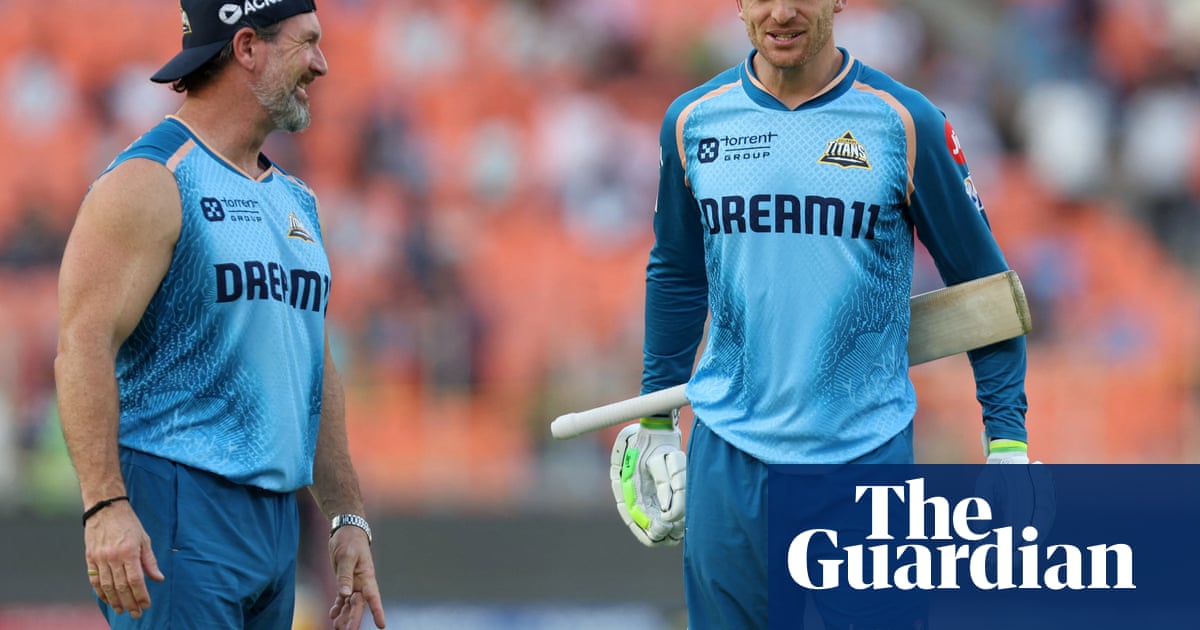England expect most of the five IPL players picked for their one-day international series against West Indies to report for international duty rather than completethe rescheduled tournament.
The IPL’s league phase will now conclude on 27 May, two days before England play their opening game against West Indies at Edgbaston, meaning that Jofra Archer and Jamie Overton, whose teams have already been eliminated from playoff contention, will certainly be free to play for their country.
The playoffs begin on 29 May, with the final to take place on 3 June, the day of the final ODI. Jos Buttler, Jacob Bethell and Will Jacks, whose sides are towards the top of the table, could all find their allegiances tested, but the England and WalesCricketBoard is confident that at least the latter two will prioritise England’s first white-ball games on home soil since Brendon McCullum took over as coach of the limited-overs sides and Harry Brook as captain. It is not certain that all of the 10 English players who had been at the IPL before its suspension last week will choose to go back at all, and with some teams not playing again until next Wednesday there is still time for them to make up their minds. But Buttler is expected to arrive in the country on Wednesday and the ECB have promised to “facilitate players’ return should they choose to go back”.
Two members of the West Indies squad play for teams that look likely to be involved in the playoffs, and while both the ECB and Cricket West Indies had agreed to let any players involved in the tournament stay in India for its duration the new schedule has made that stance more difficult. In a statement the ECB said that No Objection Certificates, which must be issued by a player’s home association before they are allowed to play in a foreign league, had “been granted based on the original IPL dates” and that they would “need to review any potential extensions”.
The new IPL dates also impact on the preparations of the two World Test Championship finalists, with that title to be decided when South Africa and Australia meet at Lord’s, starting on 11 June. While Cricket Australia has said they would “support players in their individual decisions” and “work through preparation implications for the WTC final for those players who choose to play in the remaining IPL matches” Cricket South Africa have indicated that they expect the eight members of their squad who are involved in the IPL to report for duty in England as planned on 31 May.
Under a new rule brought in last September overseas players who withdraw from the IPL for any reason except illness or injury are automatically banned from playing in the tournament for two years, and the BCCI has not yet announced that they intend to waive it given the tournament’s suspension. On Tuesday Tom Moffatt, chief executive of the World Cricketers’ Association, said players should not be punished given a lack of clarity over the security situation has left them unable to make “fully informed decisions”. “We know there are differing levels of comfort from individual players and given the unique circumstances there would be an expectation from all reasonable people in our sport that any decision made by players should not be held against them,” he said.
Sign up toThe Spin
Subscribe to our cricket newsletter for our writers' thoughts on the biggest stories and a review of the week’s action
after newsletter promotion
Archer was not included in England’s squad for the three T20s that follow the ODIs, and is expected to play for England Lions in their four-day game against India A at Northampton from 6 June as he builds up his workloads ahead of a possible Test return. Phil Salt is named only in the T20 squad, while Liam Livingstone, who captained his country as recently as November, has been left out altogether.
